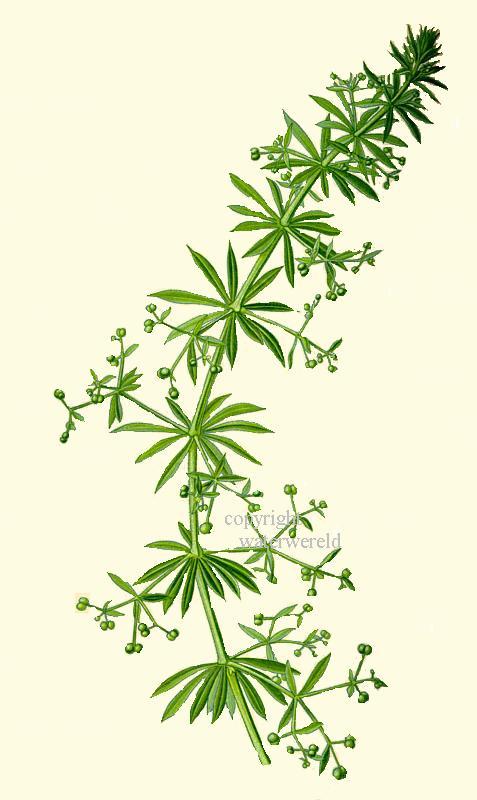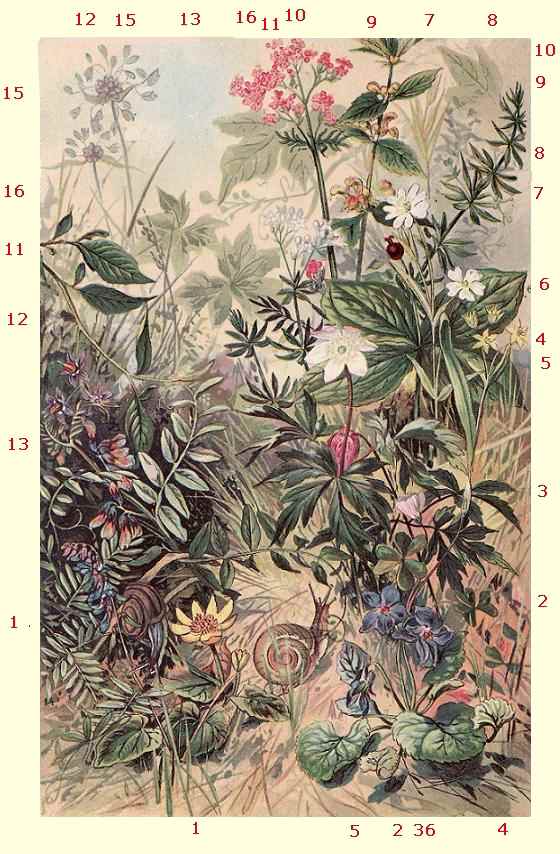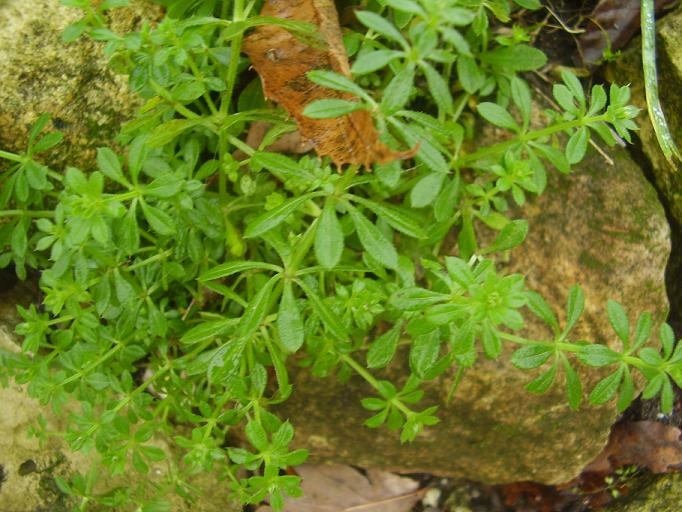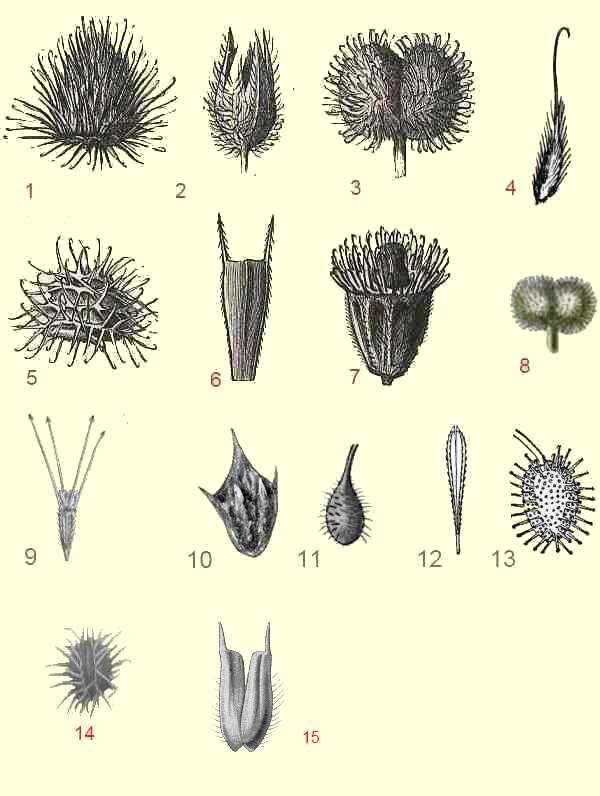Cleavers
A common annual plant, and also very well known:
This plant is sticky, due to hairs on leaves , stem and
seeds. The seeds stick to the furs of animals (and
humans).
Flowers
The flowers are almost invisable small and white.
Growconditions
This plant can be found in the near of Nettles,
giant hogweed and Cow Parsley.
These plants have in common that the ground must be
moist and fertile.


1 Lesser celandine (Ranunculus ficaria subsp. bulbilifer)
2 Sweet Violet or Common Violet (viola odorata)
3 Lesser celandine(Oxalis acetosella)
4 Yellow Star-of-Betlehem (Gagea lutea)
5 Woodanemoon (Anemone nemorosa)
6 Herb Paris, True-lover's Knot (paris quadrifolia)
7 Star of bethlehem (Stellaria media)
8 Cleavers (Galium aparine)
9 Yellow Archangel(Lamiastrum galeobdolon)
10 Valerian (Valeriana officinalis)
11 Woodruff (Galium odorata)
12 Bittersweet or Bitter nightshade (Solanum dulcamara)
13 Bush Vetch (Vicia sepium)
14 Tufted Vetch (Vicia cracca)
15 Field garlic (Allium oleraceum)
16 Cretan bryony (Bryonia cretica)
|

De stem of a cleaver
The stem of a cleaver is strong ,but can easely bend.
The upper and middle section are quadrangular and prickly
stem. The stem has it vasculair bundle placed in
the center,
In other plants the vasculaire bundle is placed
around the center.
The tiney hooks can be found only in the middle.
If an animal pases by , the seeds will attache themselves
on the fur and are tranported this way.

The middle part of the stem , is square,
hollow and has hooks attached on the corner.

The lower part of the stem is round and hs no hooks
references: Mechanical Adaptations of Cleavers (Galium aparine)
ADRIAN M. GOODMAN

Burs.
These seeds are spread by animals (and humans), they stick
to tails of horses and cows , the fur of rabits or the wings of birds:
It is a form of epichory: the spread of the seed from plants with
low investment of energy in the seed. Have a look at these examples:
1 burdock (Arctium sp.)
2 wood forgetmenot (Myosotis)
3 Cleavers (Gallium aparine)
4 avens (Geum urbanum)
5 alfalfa (Medicago)
6 beggarticks or stickseeds (Bidens)
7 common agrimony or sticklewort (agrimonia eupatoria)
8 sweet woodruff (Galium odoratum)
9 Bidi-bidi (Acaenae novae), new Zealand
10 common ragweed (Ambrosia artimisiifolia)
11 enchanter's nightshad (Circaea lutetiana)
12 sweet cicely( Osmorhiza) USA
13 american stickseed (Hackelia deflexa ) USA
14 wild carrot (daucis carotis)
| |